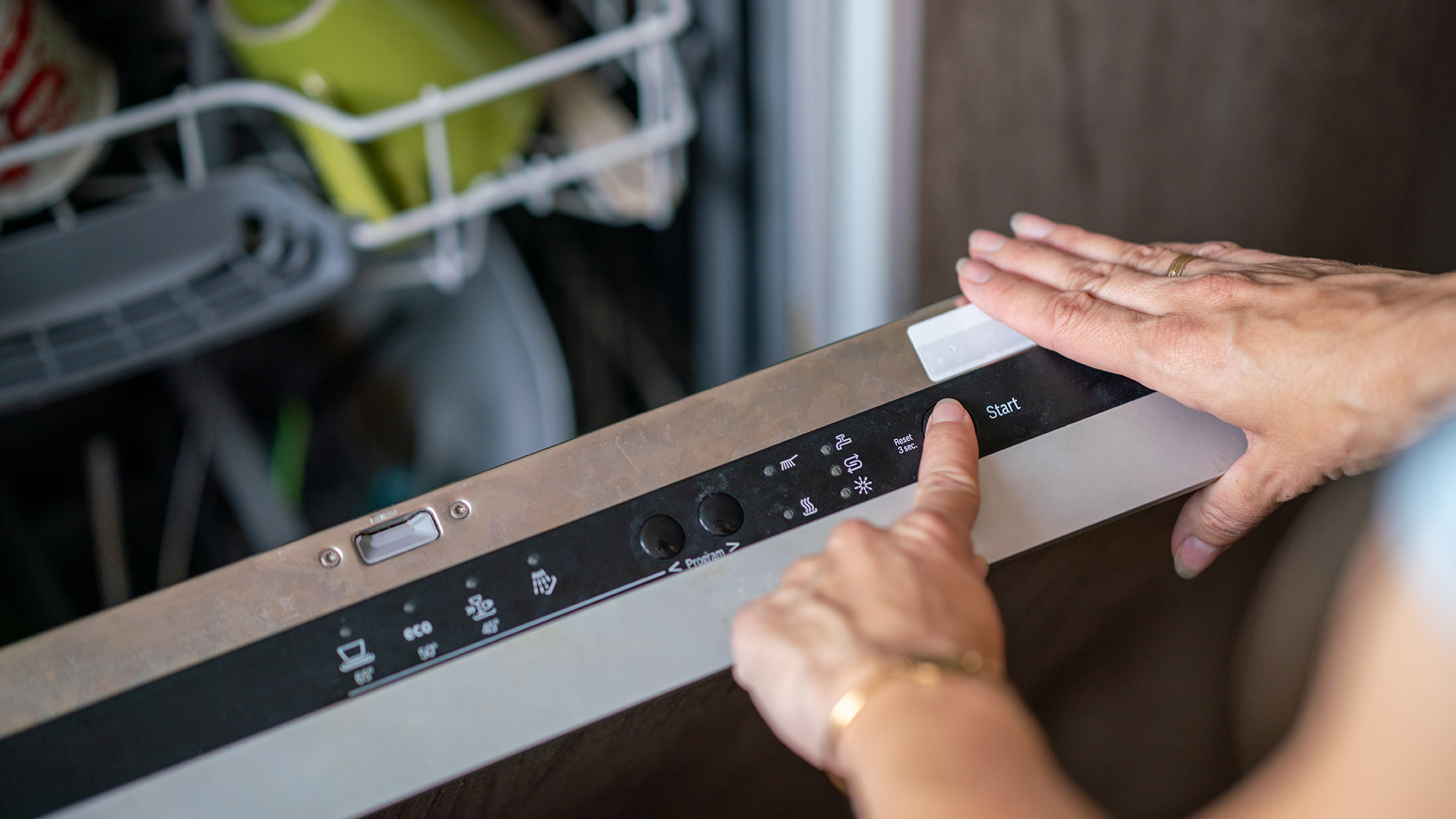How long does dishwasher cycle take – How long does a dishwasher cycle take? This seemingly simple question can have a surprising number of variables, affecting both the efficiency and effectiveness of your dishwashing routine. From water temperature to cycle type, we’ll explore the factors that influence dishwasher cycle duration and provide tips for optimizing your dishwasher’s performance.
On average, a standard dishwasher cycle can range from 1 to 4 hours, depending on the selected cycle and the specific dishwasher model. Different cycle types, such as Normal, Heavy, Delicate, and Eco, have varying durations to accommodate different levels of cleaning intensity.
Cycle Duration Variation

The duration of a dishwasher cycle can vary depending on several factors, including:
Water Temperature, How long does dishwasher cycle take
Higher water temperatures typically result in shorter cycle times as the dishes are cleaned more quickly. Conversely, lower water temperatures may extend the cycle time to ensure thorough cleaning.
Soil Level
Heavily soiled dishes require longer cycles with higher water temperatures and more intense wash cycles to remove stubborn food particles. Lightly soiled dishes, on the other hand, can be cleaned in shorter cycles with lower water temperatures.
Cycle Type
Different dishwasher cycles are designed for specific types of dishes and cleaning needs. For example, a heavy-duty cycle for pots and pans will typically take longer than a normal cycle for everyday dishes.
When the cold weather sets in, keeping your toes warm can be a challenge. One effective way to do so is to wear warm, insulated socks. Here’s a comprehensive guide on how to keep your toes toasty all winter long.
Dishwasher Model
The make and model of the dishwasher can also affect the cycle duration. Different models may have varying water capacities, wash systems, and drying mechanisms, which can influence the time required to complete a cycle.
Standard Cycle Duration

The duration of a standard dishwasher cycle can vary depending on the brand, model, and settings used. However, most standard cycles fall within a certain range of time.
The minimum duration for a standard dishwasher cycle is typically around 1 hour, while the maximum duration can be up to 3 hours or more.
Common Cycle Length for Different Dishwasher Brands
The following are common cycle lengths for different dishwasher brands:
- Bosch: 1 hour 30 minutes to 2 hours 30 minutes
- GE: 1 hour 30 minutes to 2 hours 45 minutes
- KitchenAid: 1 hour 45 minutes to 3 hours
- LG: 1 hour 45 minutes to 2 hours 45 minutes
- Samsung: 1 hour 30 minutes to 2 hours 30 minutes
Cycle Types and Durations

Different dishwasher cycles cater to various types of dishes and cleaning requirements, impacting the duration of the cycle.
Normal Cycle
The Normal cycle is suitable for everyday dishes and offers a balanced wash performance. Its duration typically ranges from 1 hour to 1 hour and 30 minutes.
If you’re an avid cyclist, you may have wondered how long it takes to cycle 30 miles. The answer depends on several factors, including your fitness level, the terrain, and the weather conditions.
Heavy Cycle
The Heavy cycle is designed for heavily soiled dishes, such as pots and pans. It employs higher water pressure and temperatures, resulting in a longer duration of 1 hour 30 minutes to 2 hours.
Delicate Cycle
The Delicate cycle is ideal for fragile items like glassware and crystal. It uses lower water pressure and temperatures to prevent damage. The duration is typically shorter, around 1 hour to 1 hour 15 minutes.
Eco Cycle
The Eco cycle prioritizes energy and water efficiency. It operates at lower temperatures and uses less water, resulting in a longer duration of 2 hours to 2 hours 30 minutes.
Energy Consumption and Cycle Duration
The relationship between dishwasher cycle duration and energy consumption is directly proportional. Longer cycles generally consume more energy as they require the dishwasher to operate for an extended period. This increased energy usage is primarily attributed to the extended heating of water and the longer operation of the dishwasher’s motor and other components.However, it’s important to note that longer cycles can also be more effective in cleaning dishes.
This is because they allow for more time for the water and detergent to penetrate and dissolve food particles and grease. Additionally, longer cycles often include higher water temperatures and more powerful wash cycles, which can further enhance cleaning performance.
Factors Affecting Energy Consumption
Several factors can influence the energy consumption of a dishwasher cycle, including:
- Water temperature:Higher water temperatures require more energy to heat, resulting in increased energy consumption.
- Cycle type:Different cycle types, such as normal, heavy-duty, or eco-friendly, have varying energy consumption levels.
- Dishwasher size:Larger dishwashers typically consume more energy due to their increased water capacity and larger motors.
- Dish load:A fully loaded dishwasher will generally consume less energy per dish than a partially loaded one.
Tips for Optimizing Cycle Duration
Optimizing the cycle duration of your dishwasher can save you time and energy. Here are some tips to help you get the most out of your dishwasher:
Pre-rinsing Dishes
Pre-rinsing dishes before loading them into the dishwasher can help reduce the amount of time it takes for the dishwasher to clean them. This is because pre-rinsing removes most of the food and grease from the dishes, so the dishwasher doesn’t have to work as hard to clean them.
Using the Correct Detergent Amount
Using the correct amount of detergent is also important for optimizing cycle duration. If you use too little detergent, the dishes may not get clean, and if you use too much detergent, it can leave a residue on the dishes.
Avoiding Overloading the Dishwasher
Overloading the dishwasher can also increase cycle duration. When the dishwasher is overloaded, the dishes don’t have enough room to move around, and the water and detergent can’t reach all of the surfaces of the dishes.
Closing Notes
Understanding the factors that influence dishwasher cycle duration empowers you to make informed decisions about your dishwashing habits. By optimizing cycle selection, utilizing energy-saving features, and following proper maintenance practices, you can ensure your dishwasher operates efficiently, effectively, and within your desired timeframe.
Essential FAQs: How Long Does Dishwasher Cycle Take
Can I speed up my dishwasher cycle?
Yes, some dishwashers offer a Quick or Express cycle that prioritizes speed over energy efficiency. However, this may compromise the thoroughness of the cleaning process.
How often should I run my dishwasher?
The frequency of dishwasher use depends on your household’s needs and the amount of dishes generated. Aim to run a full load every 2-3 days or as needed.
Is it better to use a hot or cold water setting on my dishwasher?
Hot water is more effective at removing grease and grime, but it can also increase energy consumption. Cold water is gentler on dishes and may be sufficient for lightly soiled items.
